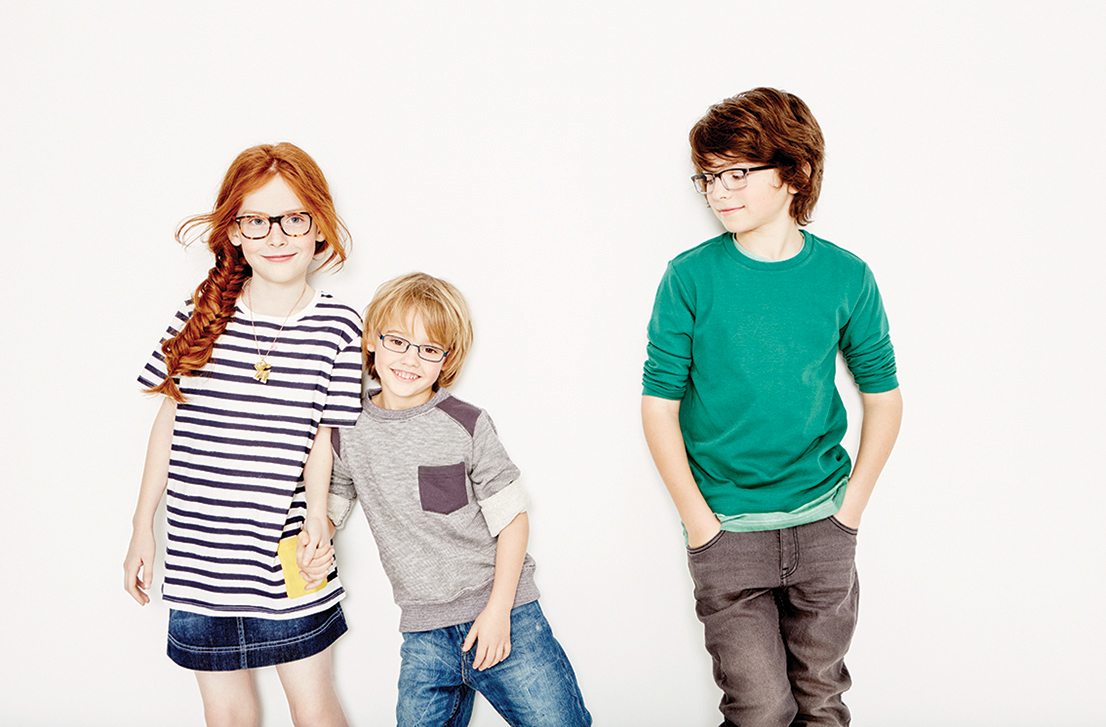5 ways to protect your child's eyesight
Why taking them for an eye test needs to be on your priority list

We all know how important our eyesight is, and how much we rely on our eyes to learn about the world around us. So imagine what that's like for children in those very early years - especially when they start school.
With 80% of what they learn being taught visually, it's crucial that they can see clearly. If words are blurred when they try to read, it could result in your child falling behind at school or acting up. The good thing is there are ways to future-proof your child's eyesight, and there's something you can do right now to take action.
1. Start early
It's never too soon to start looking after your child's eyesight. In fact, even as babies, children's eyes are assessed as part of the routine six-week check. But it's recommended that a child has an eye test with a trained optician after they turn three, and certainly before they start school. There's no need to worry if your little one can't recognise letters yet, as the examiner will use special charts with pictures, shapes and colours to make it fun. Your little one might even enjoy it, and if there is a problem, such as a squint or amblyopia (lazy eye), it's best to catch it early. You can make an appointment at Specsavers online, or at your local branch.

2. Choose the right glasses
If your child does need glasses, be sure to find ones that are specifically designed for kids - they're not just smaller versions of adult styles. Not only will they be more appealing, they'll take into account your child's head shape and the fact that they'll carry on growing during the time they own them. As well as a narrower width and a larger angle over the bridge of the nose, children's glasses have nose pads so the frames sit a little higher. They also feature a deeper lens and a curved upper rim, as children spend more time looking upwards than adults.
3. Signs to keep an eye out for
Young children may find it difficult to explain that they're having trouble seeing clearly or even be aware that there's a problem, so regular eye tests are key. Be alert to issues in the meantime: if they sit too close to the TV, rub their eyes frequently, seem to have a short attention span or seem extra sensitive to light.
4. Get your school involved
GoodtoKnow Newsletter
Parenting advice, hot topics, best buys and family finance tips delivered straight to your inbox.
Specsavers have teamed up with Thomson Screening to offer schools free vision-check software. The screening includes a test for colour vision and can be used on children aged seven and above, so ask them to sign up at screeningforschools.co.uk.
5. Keep it up to date
Did you know that if your child is aged under 16 they're entitled to a free NHS eye test every two years? It's worth doing. Even if your child has had an early test, the situation can change as they get older, and problems are so much easier to treat if found while their vision is still developing. Pop into your nearest Specsavers, or make an appointment online.
Getting your child's eyes checked is a priority, so make your appointment now. It could make all the difference to their life
Trusted, informative, and empathetic – GoodToKnow is the ultimate online destination for parents. At GoodtoKnow, our mission is 'simple': we're trying to make sense of parenthood. On the site, you'll find everything you need for a happy, healthy family life. Our huge archive of content includes more than 18,000 articles and 1,500 how-to videos. These include expert-backed advice features on parenting, dealing with relationship changes after having a baby, self-care for mums and managing your family finances. We also feature tried-and-tested product reviews and buying recommendations for every stage of family life - from prams and Moses baskets to birthday gifts and top toys.